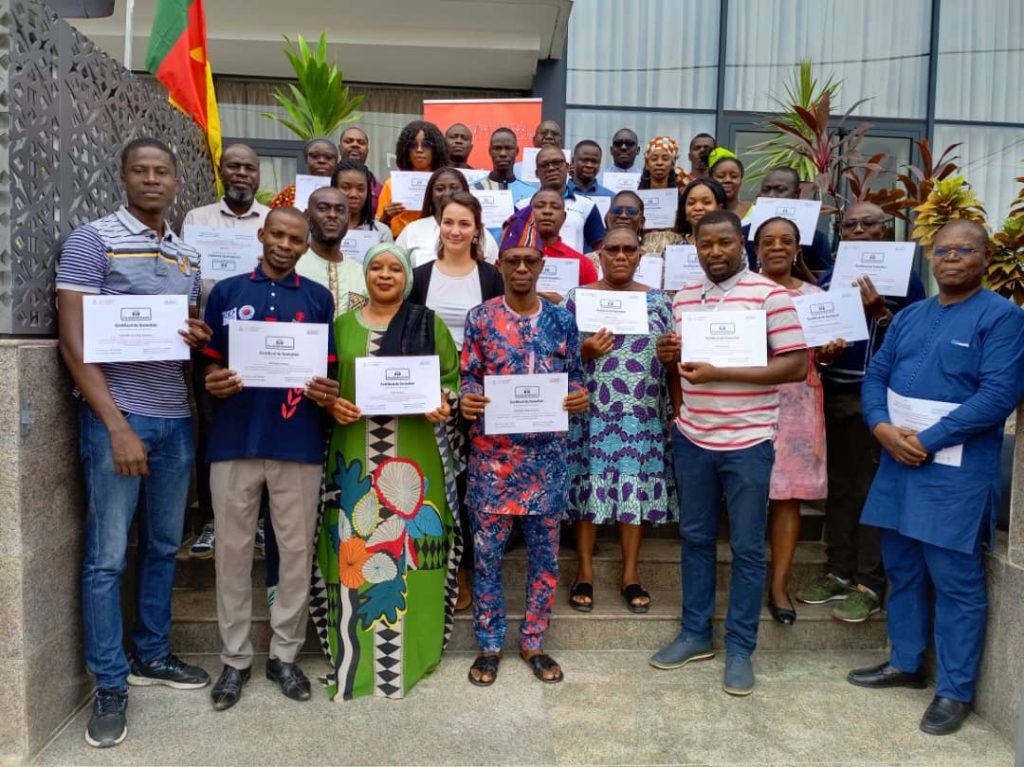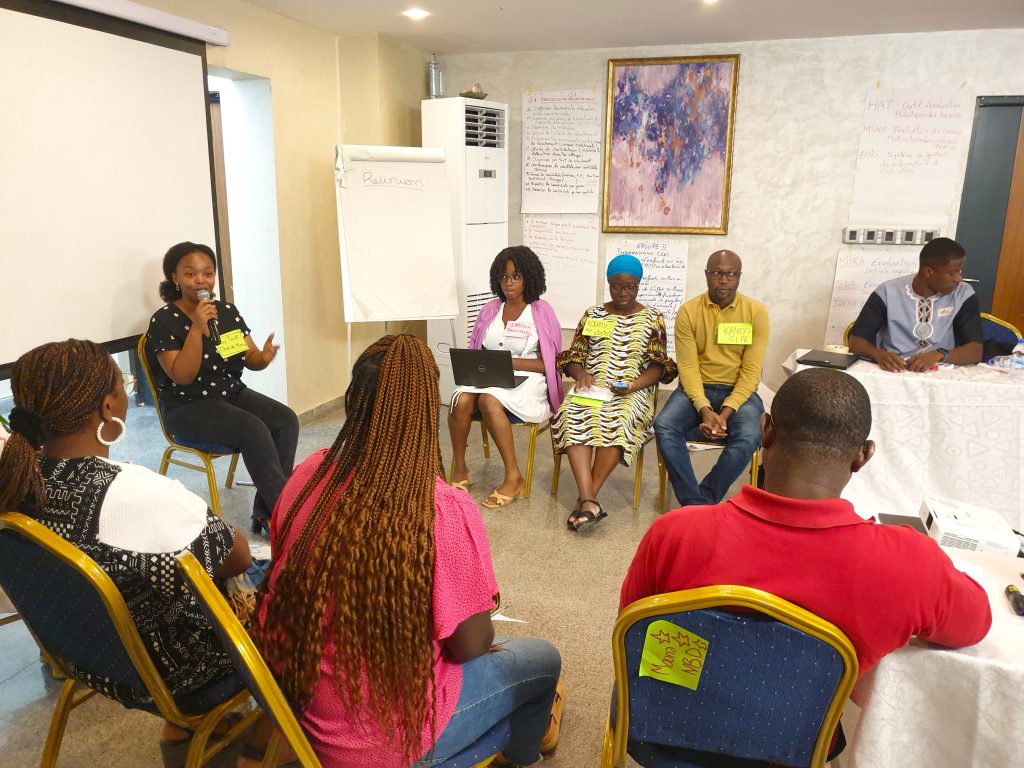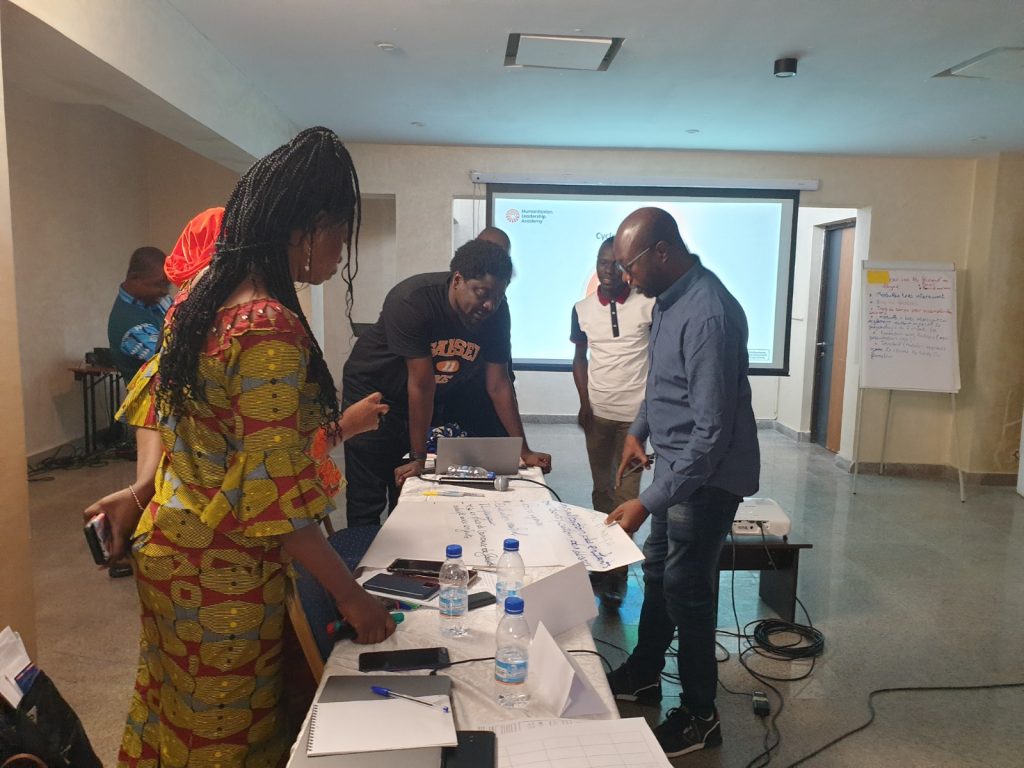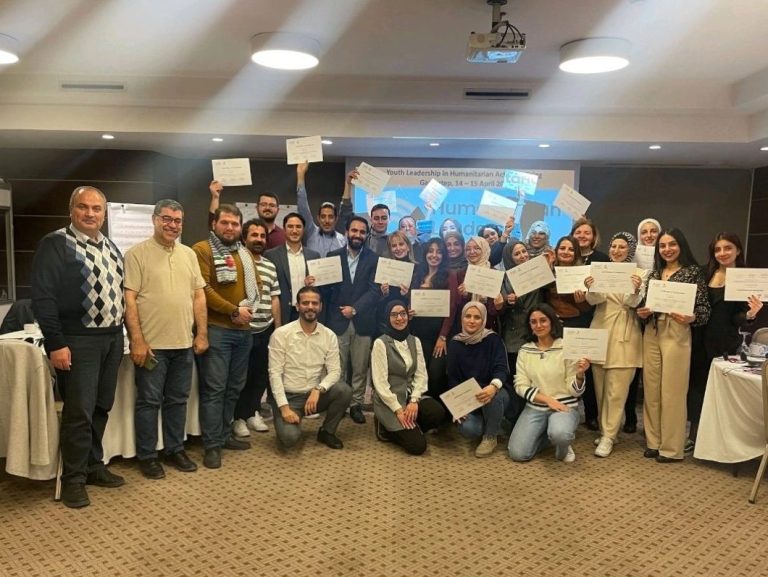HLA’s team in West and Central Africa with Save the Children Côte d’Ivoire in February, led a successful Education in Emergencies (EiE) Fundamentals training. 34 humanitarians from various parts of Côte d’Ivoire and four country offices in the region took part in the course, which was delivered in French.

EiE Fundamentals aims to equip country office education and EiE staff with the fundamental competencies to be part of initiating, designing and implementing a quality EiE response in their context.
This training was contextualised to fit the specific needs of the participants – for example, an additional module on the Rapid Integrated Response in Education in Emergency Situations (RIRE) approach was included to the training.
The goal of this approach is localised learning that strengthens capacity to support local responses. Such as in the case of Côte d’Ivoire; the arrival of large numbers of refugees, including school-age children in north of Côte d’Ivoire and Mali and Burkina Faso where there are emergency situations.

Adama Traoré, Save the Children Côte d’Ivoire Area Coordinator joined the course, he said:
“The training on the fundamental principles of education in emergency situations was an opportunity for me to develop actions and improve the way I do things. I realised that all programmes in emergency situations require a rapid multi-sectoral assessment that looks at a number of aspects that will contribute to the well-being of the children. I found the training interesting and relevant, with clearly defined learning objectives and simple interactive methods that met adult education standards. I’m now going to use other aspects covered during the course to improve my interventions in the various projects and programmes”.
Participants in the EiE Fundamentals training also had the unique opportunity to share experiences and exchange good practice while navigating perspectives. Some of which were on the complexity of implementing education programmes in emergency situations and the importance of children’s participation.
Sylvain Konan, a participant on the course shared:
“Very exciting session with very well-calibrated facilitation. The training on the fundamentals of the EiE gave participants important knowledge on how to design an emergency response, appropriately integrating cross-cutting issues, with the appropriate participation of children. Personally, I came away from this training with the determination to further develop my skills to help provide an appropriate and effective response to the emergency situations we will have to deal with.”
Mariam Kouadio, Manager at the Non-Formal Education Department in Côte d’Ivoire participated in the course, she said:
“This training has been of great benefit to me. It has reinforced my knowledge and skills about the accelerated education programme, especially in emergency situations. The modules are easy to assimilate and flexible. This training will enable the Non-Formal Education Department to take steps to intervene in the event of an emergency situation.”
Cissé Sononsa, Area Manager of Save the Children Côte d’Ivoire also participated in the training, she shared:
“This training has enabled me to measure the importance of conflict sensitivity and mitigation, to take account of cross-cutting approaches to gender, inclusion, mental health and social cohesion, to remember to collect information relating to education and to take account of children’s participation in the design and implementation of education projects in emergency situations. I am committed to ensuring that EiE aspects are taken into account in the design of humanitarian projects in Côte d’Ivoire to better protect children, their best interests and their well-being.“



